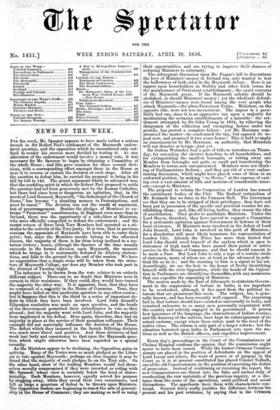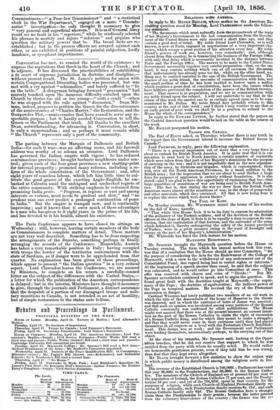Every day's proceedings in the Court of the Commissioners at
Chelsea Hospital confirms the opinion that the commission ought never to have been issued. While the former Crimean Commis- sioners are placed in the position of defendants on the appeal of Lord Lucan and others, the want of power or of purpose in the Court as it is at present constituted has placed Colonel Tulloeh, one of the old Commissioners, in the position of executing the duties of prosecutor. Instead'of confirming or reversing the report, the new Commissioners are thrust into the false and useless duty of overhauling the raw materials of the previous inquiry, at a dis- tance from the scene of the operations, amid political and social distractions. The appellants treat them with characteristio con- tempt. General Airey coolly justifies the difference between his present and his past evidence, by saying that to the Crimean Commissioners—" a Poor-law Commissioner" and "a statistical clerk in the War Department," engaged on a mere " Commis- sariat " investigation—he only thought it neoessary to give "very general and superficial answers." It is as if General Aire could see no fault in his "superiors," while he studiously selected his phrases to mortify and injure " inferiors " and pequins who question the military powers that be. The broad facts are re- established ; but in the process officers are arrayed against each other, or are exhibited in positions of painful subjection, lordly insolence, or sycophant impertinence.



























